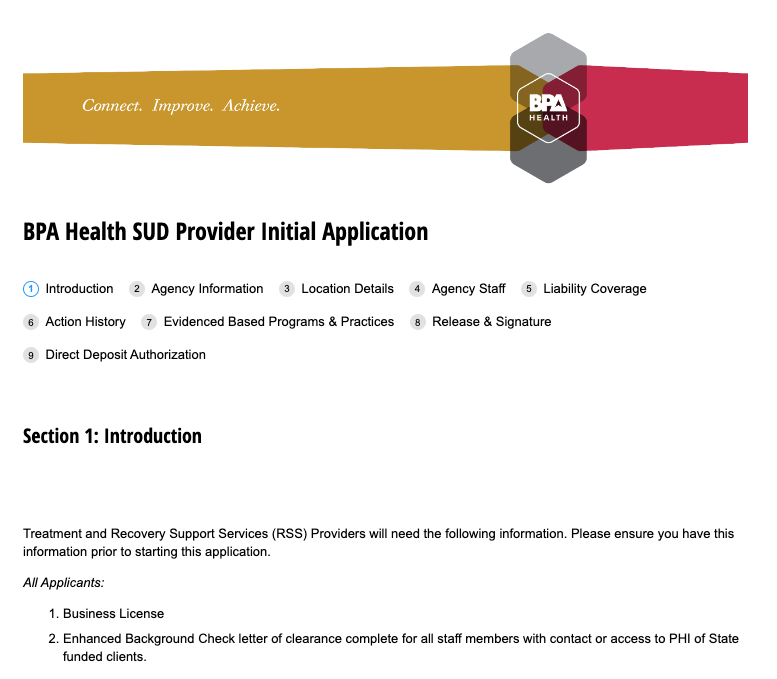Secret #1: Addiction Treatment Businesses in Idaho Should Emphasize Alcohol Use Disorder Over Opioid Use Disorder
There is a wealth of information available on the rates of addiction and mental health issues in Idaho. Idaho has elevated rates of anxiety and depression compared to the rest of the United States, with over 33% of Idahoans reporting symptoms of one of these conditions.
Drug overdose deaths in Idaho are actually much lower than the national average, but alcohol use disorder is slightly above the national average.
While adults are less likely to use illicit substances in Idaho, adolescents report use rates of illegal drugs like heroin, fentanyl, methamphetamines, cocaine and marijuana at a rate that is higher than the national average.
Secret #2: Idaho Addiction Treatment Centers Aren’t Required to Get Certified or Licensed With the State…But There’s a Catch
Like many states, Idaho only requires addiction treatment centers to get certified with the state if they intend to accept public dollars (think Medicaid), participate in state-sponsored programs, accept referrals from state agencies, or apply for public grants. Addiction treatment centers that seek to operate outside of the state’s addiction treatment reach - say, upscale programs that are exclusively self-pay - don’t need to bother with state certification in Idaho. The Idaho state code defines these as “public facilities” versus “private facilities voluntarily approved.”
Secret #3: Idaho Outsources all Addiction Treatment Certifications to a Private Entity Called BPA Health
BPA Health is a private company that is responsible for all public behavioral healthcare programming in Idaho. This is an unusual set up that isn’t seen in many states. You can access all of the forms you need to apply to become a part of the BPA Health network here.
Secret #4: The Certification Process for Addiction Treatment Centers in Idaho is Surprisingly Lengthy
According to state code, you’ll want to apply 90 days in advance of when you think you’ll need your addiction treatment license in Idaho.
You’ll need to plan on providing all of the following in your application:
Application form
Application fee
Copy of “Certificate of assumed business name” (obtained from the Idaho Secretary of State)
Floor plan with architectural drawings
Disclosure of ownership
Copies of all certificates, permits, or licenses such as: certificate of occupancy, certificate of fire inspection, food services permit
An inventory of treatments proposed
Proof of Joint Commission or CARF certification, if applicable (not required)
Resume and information on all important individuals involved, including the ED, the clinical supervisor and the treatment supervisor
Copy of the lease
Proof of insurance
Copy of your policy and procedure manual
These requirements are pretty standard in most states.
Furthermore, like many states, Idaho is suspicious of addiction treatment center operators. The application process also requires additional information specific to the owners and operators of the facility.
As such, Idaho wants a written statement from the owner, applicant or ED detailing:
If they’ve ever had any professional licenses revoked in any states
If they’ve ever had any professional disciplinary action taken against them in any state
If they’ve ever run afoul of any fraud, waste and abuse laws in any state
If they’ve had any IRS tax “issues” in Idaho or federally within the past 5 years
Idaho takes it one step further, though. Here’s some strange requirements that are relatively unique to Idaho:
Proof that the food menu (if any) has been approved by a dietician within the last 12 months
Detailed description of the accounting and EHR system you intend to use
Details on your plan to secure funding for the venture
Information on your outcomes measurement plan
You have 6 months to get all of these pieces together. If you fail to complete the application within six months, you’re automatically denied and you'll have to wait another full calendar year to re-apply! After you’ve completed your application, the state commits to get back to you within sixty days. This is actually a short and definitive commitment, many states will not specify their turnaround time, so understand that Idaho is being generous here.
Secret #5: It’s Smart to Get Pre-Accredited by the Joint Commission or CARF if You Plan on Opening an Addiction Treatment Center in Idaho
If you’ve already received your Joint Commission or CARF accreditation, you can skip a lot of this paperwork and just submit a few documents, including your proof of certification, to the state for in-kind licensing. The same fees apply but the process is much less painful.
Secret #6: Idaho Has a Unique Scoring System for Addiction Treatment “Approval” (aka Licensing Process)
After the inspection takes place, the state submits its findings to you. They’ll do one of the following: issue a certificate of approval for two years, one year, six months, or, they’ll deny it outright.
The duration of your approval is based on a scoring system. You’ll receive several different scores in several different categories. Each score is totaled together to determine a total weighted score. Any facility with a weighted score of 65% compliance or above is approved for some period of time, assuming they didn’t score any lower than 65% in any given category. Those with weighted scores of 90% and no individual category score below 80% are granted 24 months of approval from the state.
Need More Help Opening an Addiction Treatment Center in Idaho? We’re Here for You.
Behave Health is committed to making it easier - and more profitable - to operate evidence-based, results-focused addiction treatment centers.
Our all-in-one app puts clinical, administration, staff, admissions, alumni, residents, treatment plans, billing, insurance authorizations and more - all at your fingertips.
Get your free trial started today and see why more addiction treatment centers prefer Behave Health.
Need help with certification? Behave Health can also help direct you to the right resources for help with Licensing or Accreditation by either The Joint Commission or CARF. Mention to your product specialist that you’re interested in this service after you start your free trial!







